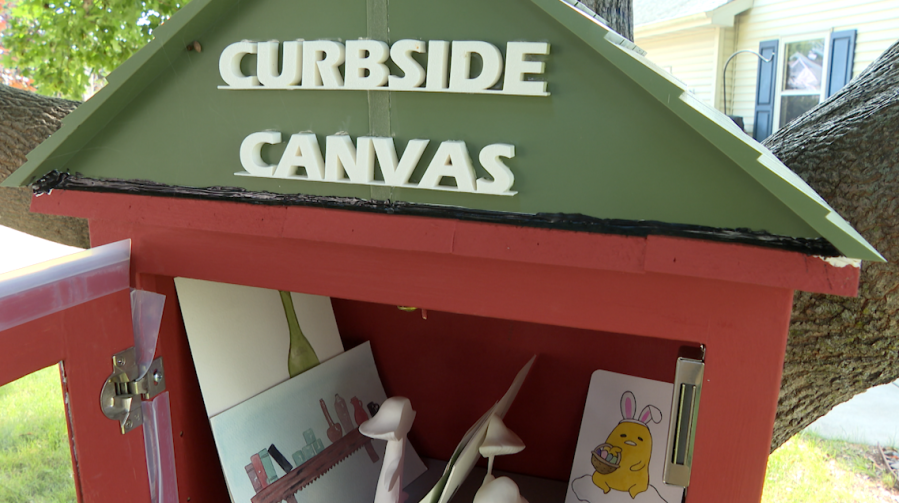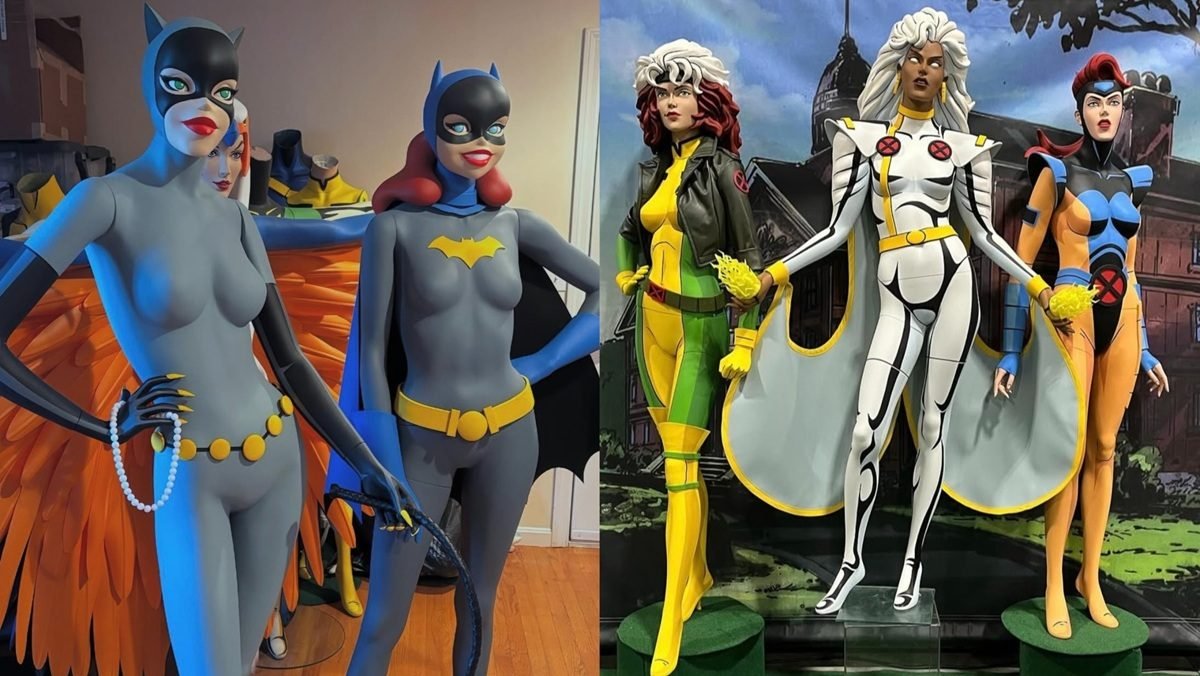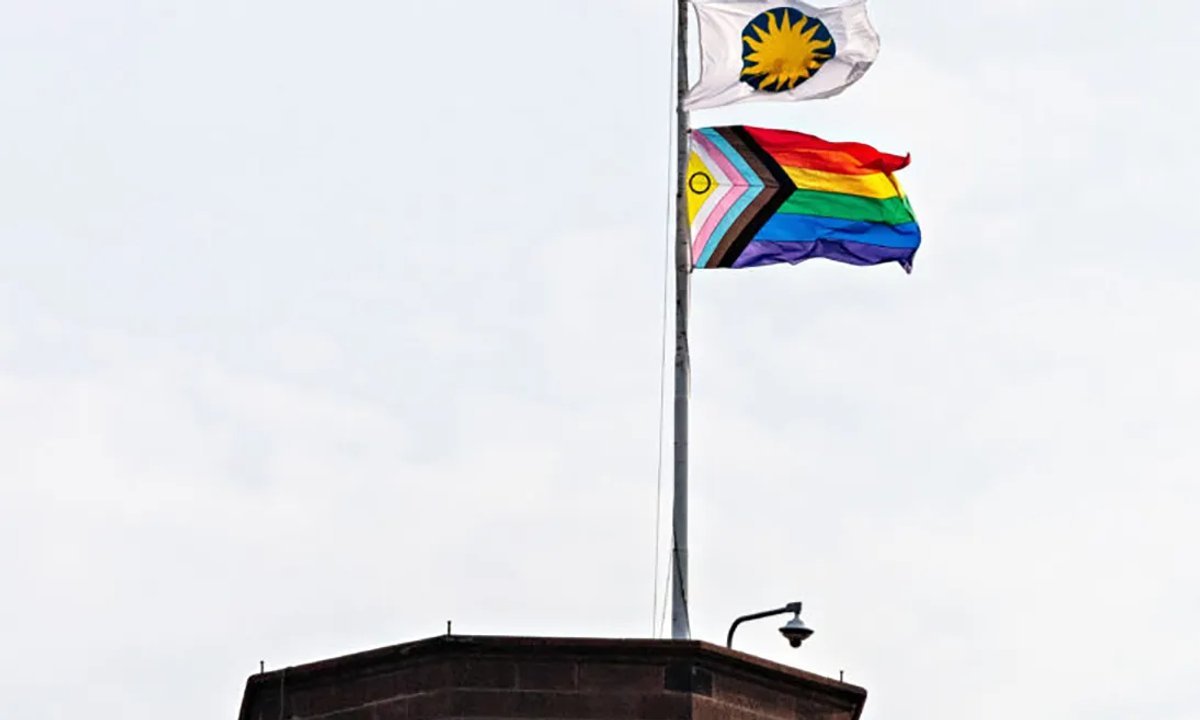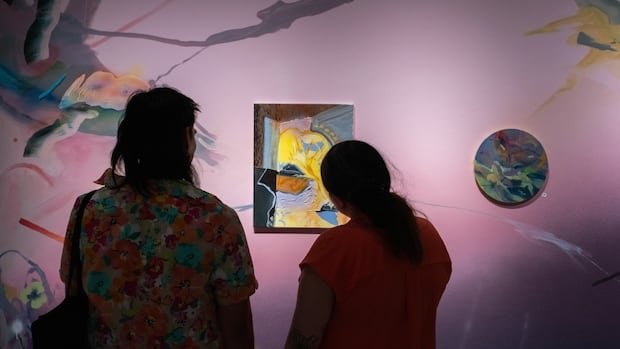A £2.89 frozen pizza sits half-removed from its packaging. On it, slices of pepperoni are arranged against a base of white mozzarella to resemble the St George’s flag. It’s the kind of thing photographer Kate Schultze calls ‘British weirdness’, a phenomenon she has experienced no shortage of since moving to the UK from Germany in 2015. “British weirdness is in things from everyday life that are so odd you think they could never be found anywhere else,” she explains. “It’s hard to define it, but it resides somewhere between humour and shamelessness, and you never really know if it’s a deliberate provocation or just naivety.” Custard, for example, or switching on your TV to find the prime minister hiding in a fridge. Though perhaps the weirdest occurrence in the country’s recent past happened almost exactly eight years ago, when 52 per cent of Brits voted to leave the European Union.
It’s the curious period that followed which forms the subject of Shultze’s new photo book, Mind the gap, luv, which documents the aftermath of the referendum on young people in Brexit strongholds like Yorkshire and the West Midlands. “In 2020, I moved to Leeds. It’s a completely different social and economic situation in Yorkshire compared to London, and it was interesting to me to find such a wide range of opinions among my own friendship groups.” Many of these friends feature in her work; some stand tall-shouldered and centred, calmly staring down the lens, while others seem ambivalent, letting their gaze meet the floor as they slump over kitchen chairs, boxes of Strongbow stacked on the table behind them.
This diversity of opinion is mirrored in a selection of handwritten notes which appear intermittently in between photos and vary from rationalisation and resignation to full-blown regret. Just old enough to cast their ballot, many of her friends voted to leave in 2016, an anomaly considering that 75 per cent of young voters (aged 18-24) chose to remain. “I feel for them,” she continues. “It’s a transitional time between childhood and adulthood, suddenly, you’re supposed to decide on the country’s future.” But there is unity in the aftermath, and a consensus among them – as there is for many young people across the UK – that Brexit has caused more problems than it has solved. “There are very few that still stand by their decision to leave, effectively people were lied to.”
These tender and intimate portraits of uncertainty are sandwiched between landscapes of two kinds: that of austerity Britain – stagnant scenes of empty car parks and collapsed high streets – and another, more carnivalesque landscape; that of the British media. It’s jarring to see triumphant headlines celebrating ‘freedom’ and ‘destiny’ laid bare against grey, unpeopled industrial zones and shuttered social clubs. “To me, the process of making this book felt a bit like collecting evidence. I didn’t try to find the most neglected British landscapes, nor did I try and look for the most ridiculous newspaper headlines.” Shultze explains, “It’s just what people are confronted with daily, the contrast between real life and the empty promises made by politicians.”
“I didn’t try to find the most neglected British landscapes, nor did I try and look for the most ridiculous newspaper headlines. It’s just what people are confronted with daily, the contrast between real life and the empty promises made by politicians” – Kate Schultze
Schultze, who grew up in East Berlin, brings a unique perspective to her work, not only as a European living in the north of England during the Brexit years, but as someone who was able to study here thanks to EU funding. “I definitely became more aware of some of the privileges we get from the German and European government,” she added, “But in some ways, the UK reminded me of home. The North-South divide in the UK is reminiscent of Germany’s East-West divide, even though it’s a lot more pronounced.” Despite being European, Schultze is no passive observer and makes her stakes known through a series of screenshots from the digital pre-settlement form she was required to fill in to stay in the country. The questions range from entertaining to ridiculous; have you ever supported, encouraged or been involved in crimes against humanity? one asks.
Reflecting on the turbulent period she spent in Leeds, Schultze notes the warmth and sense of community she encountered up north. It’s a feeling tempered by the lack of support she observed, as she watched her friends struggle to find work that would pay the bills. “For some, I think Brexit was a means to an end. Disillusioned with politics, it was less about leaving, and more about rebelling against a hostile antagonist – the Tories, the ‘South’, Brussels.” It’s a sentiment echoed in the most recent election; which was won not out of enthusiasm for Labour, but of desperation for change. And that’s exactly what Schultze is rooting for. “I found family here,” she concludes, “and I’m not giving up on that anytime soon.”
Mind the gap, luv by Kate Schultze is available here.






